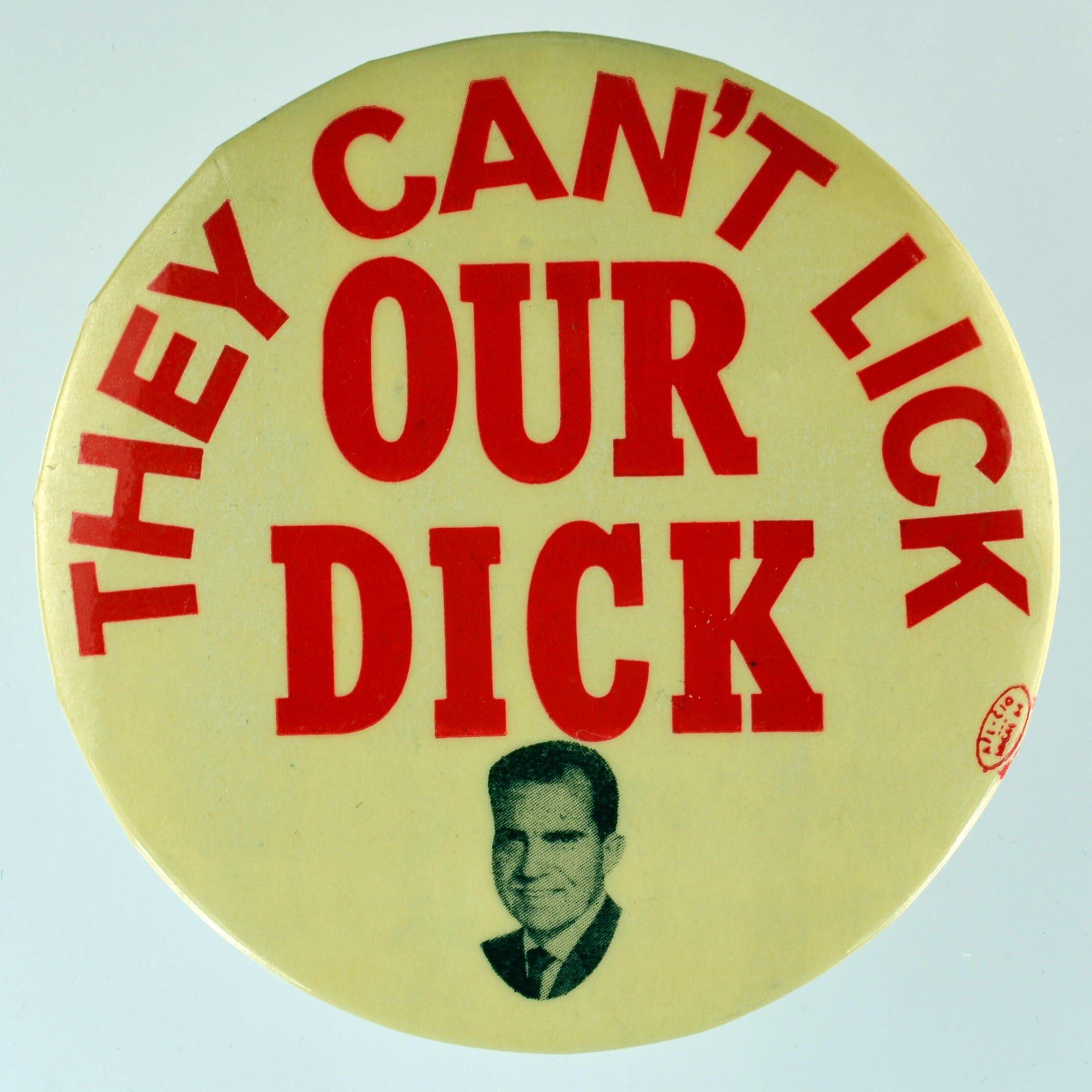Honestly, I’m really conflicted on how I feel about the action, but I have to admit the speech itself was magnificent even in its brevity. Where was this well spoken Ford when it came time to speak at the ’76 RNC? Did he fire his speech writer or something? Who knows. Anyway, he gives a very eloquent and surprisingly moving case for Nixon in this address. I agree with a lot of the points Ford raises, and do believe that he acted in the manner he felt was best for the country.
Myself though…I’m very skeptical pardoning Nixon was the right thing to do. I believe it set a dangerous precedent in this country that there is a two-tiered justice system. By all accounts, if there were any justice in this world, W Bush at the very least (and others as well, in fact most 20th and 21st century Presidents) ought to be tried as war criminals. W is the best example, one whom I don’t think any but the most hyper-partisan Republicans would disagree with, which is why I single him out in particular. But after he stepped down, Pelosi and Obama just let him, Cheney, Wolfowitz, Rumsfeld and Rice off scot-free. The understanding is, you can do whatever you want, because the next guy will let you off, and in turn he won’t be prosecuted for his own crimes at home and abroad when the time comes to step down. I’m sure I’ll get dozens of people pissed at me for this, but Obama could very well be tried as a war criminal himself. He won’t be though, and whoever follows will be just as bad in this regard as he, and so on. [This essay was written before Trump got elected but obviously the point stands.] You could argue Ford established that precedent, or at the very least, made it “official” and transparent, where before it was more of an unspoken rule among the political class which the public were blissfully unaware of.
I think a high profile case like this ought to have been the perfect time to show that no one is above the law, not even the President. I think the American people ought to have had that satisfaction, as well as that warning. By pardoning Nixon, I believe the apathy and disillusionment many felt in their government was amplified, not healed. Yes, it would have been grueling as the trial played out, but it needed to happen to maintain that trust and the spirit of the Constitution. Yes, the President can technically pardon whoever they want, but I don’t believe a former President who broke the law and resigned in disgrace is who the founders had in mind. I honestly don’t believe they ever conceived of such a scenario occurring, much less the “pardon your predecessor and the same will be done to you” nightmare we have now.
I say all of this not with any special loathing or even distaste for Nixon as a person or president either. I have mixed views on him in both contexts. I think he started off a good enough man as far as the dirty business of politics goes, but his paranoia, insecurities and near-pathological belief that only he could lead America eventually destroyed him. There are semi-credible accusations that the 1960 election was stolen from him, and in any case he never got over it. My perception, based on some scattered research and my dad’s opinion, was that he became embittered by the fact that everyone loved the Kennedy’s but nobody showed him the same adoration. He was exceedingly private, formal and I’d even go so far as to say haunted in his private life. This isn’t my only source obviously, but I believe McGovern put it best when he speculated “I don’t think he was ever truly happy a day in his life” and in the book I’m reading about the ’72 election, one of his psychologists is quoted stating he was mentally dominated by his mother. Basically hes a real life Shakespearean character.
As a president, Nixon has a mixed legacy outside of Watergate. He gave us the EPA and opened relations with China, but also began the Southern Strategy and War on Drugs. There are better Presidents definitely, but there were also far, far worse. After Watergate, he’s become something of a cartoon character in the public eye, the embodiment of political evil and corruption. I don’t think that’s totally fair; all Presidents were corrupt and morally flawed on at least some level. Nixon’s just the one who pushed it to a level where it couldn’t be ignored, and did it in such a way that his crimes couldn’t be brushed off as an evil for the greater good. (As opposed to, say, dropping the atomic bomb or suspending habeas corpus during a civil war.) I’d argue that indiscriminately droning people in the Middle East is worse, but you can justify that to people in a way that you cant justify spying on the opposite party. In short, Nixon is a tragic and fascinating figure, which makes him oddly likable at least on some level and he has enough positives to at least somewhat overlook the negatives, especially considering how other Presidents were also corrupt. All that still doesn’t change the fact that Ford made the wrong call, at least in my eyes.
One final consideration is Ford’s legitimacy. He was a specially appointed VP after Spiro Agnew was himself forced to step down. As a result, once Watergate blew up, Ford became President a year later, the only man to never be elected on a national ticket to the office of chief executive. The way Ford was able to become President doesn’t sit right with me. That’s not a dig at Ford personally, but by what right does a non-elected man govern the country and pardon the most infamous criminal in America at the time? That same criminal to whom he now owes this unprecedented silver-platter presidency, no less. We should have emergency elections in a case like this, though making a Constitutional Amendment after the fact would probably be a waste of time considering this type of bizarre situation will almost certainly never happen again. (Not to mention the immense difficulty in passing an amendment in today’s hyper-partisan gridlock.) I think in a situation like this it ought to have been the old Speaker of the House who took over, as they’re the elected official next in line after the VP. Or perhaps the runner up during the previous election should step in when a situation like this occurs. The latter is probably impractical, but in all honesty it seems more fair.
In any case, I think Ford ought to have taken it upon himself to realize “I’ve entered office with no public mandate, no platform of my own, and no political infrastructure. I owe it to the people to fulfill the policy platform of my predecessor, as that’s what they voted for. On all other controversial matters which do not require an immediate action, I shall defer to the will of the people.” In most cases, it’s a good idea for a leader to act of their own accord, and not always ask the populace what they should do, since people are fickle and in a republic, you’re elected to decide for us in surprise situations like that. However, Ford’s case was special, as we had not given him permission to sit in the chair at all, much less make such a drastic decision. His chief responsibility was to restore faith in the office of the Presidency and keep things under control until a successor could be voted in, or if he so chose, Ford himself could be elected on his own platform. With that in mind, what to do about Nixon was best left to the justice system. Had he genuinely believed it was best, perhaps Ford could have argued the idea to the country in this speech, gauged the way the wind was blowing, and then acted.
In short, for some outsider to waltz in and pardon an infamous criminal whom he owes his new position to without any kind of mandate, discussion or regard for the message it sends…that just strikes me as wrong. Anyway, that’s just my opinion.


Hi Cassie, Glad to see you are getting some writing done today.
I rember when Ford pardoned Nixon although I don’t remember listening to the speech. For me and a lot of people it seemed to bring closure to the whole Watergate mess and for that reason mostly it seemed to me the right thing to do at the time. You made some very good points with yiour comentary that I never thought of at the time and that make a lot of sense looking back at it from 2020.
LikeLike
As always, thanks for reading Ron 🙂
LikeLike
This is weird seeing this again after 47 ? years ( thank you for posting the speech ) . This is probably only the second time in my life that I’ve watched it. I saw the speech live and was initially very, very angry — spitting nails angry. It took me several months to understand and forgive Ford for doing this, but eventually he became my favourite president and I voted for him in ’76. He ironically was chosen by the Democratic congressional leadership to be vice president ( Nixon called them in and asked them to name any Republican in Congress, since he, Nixon, was already sinking in popularity from the on-going Watergate scandal and simply had no leverage in the overwhelmingly Democratic congress. )
PS : I researched the 1960 election very thoroughly in the ’70s and believe that Nixon was robbed of the honour of receiving the popular-vote majority and, also, of the electoral-college votes from Illinois — Chicago Dem precinct workers literally threw sealed ballot boxes from ‘ non-co-operative ‘ precincts into the River Calumet. Whole towns in Texas voted in alphabetical order at twelve noon unanimously for Kennedy/Johnson. A Chicago precinct captain, speaking to a NYC newspaper journalist about the cheating, pointed to a Chicago cemetery and said, ‘ How many votes do you want ? ‘
LikeLike
PPS : Actually, the unconstitutional, federal ‘ war ‘ against drugs dates back to Franklin Roosevelt. When the country revoked the Alcohol Prohibition ( which Roosevelt had wanted to retain ) , he wanted to retain the prohibition bureaucrats in some capacity and chose, of all stupid things, to attack hemp, even though it grew naturally as a weed, was hitherto uncontroversial, and had even been grown by our Founding Fathers ( as an American Indian, I find that expression unintentionally humourous ). William Randolph Hearst, the model for ‘ Citizen Kane ‘ , co-incidentally also wished to destroy that industry at that time, since Mexico had just nationalised his Mexican hemp-farms, which he depended on for much of his publishing supplies.
PPPS : ( sorry ) I should have made it clearer that the mere switching of Illinois to Nixon would not have given him the presidency. Senator Robert Byrd would have held the balance of power with his electoral-college delegates and would have made a devil’s bargain with Johnson. There was massive, provable corruption in Missouri, Arkansas and Texas, but the closest margin was in Texas, with about a 50,000-vote margin. Nixon could easily have proved the corruption amounting to many thousands of votes, but 50,000 would have been an Herculean labour. The Dems had a death-lock on both houses of Congress, including by state delegations voting by state, so the election would have been for Kennedy there, anyway. Best guess : Kennedy was an electoral-college president.
LikeLike